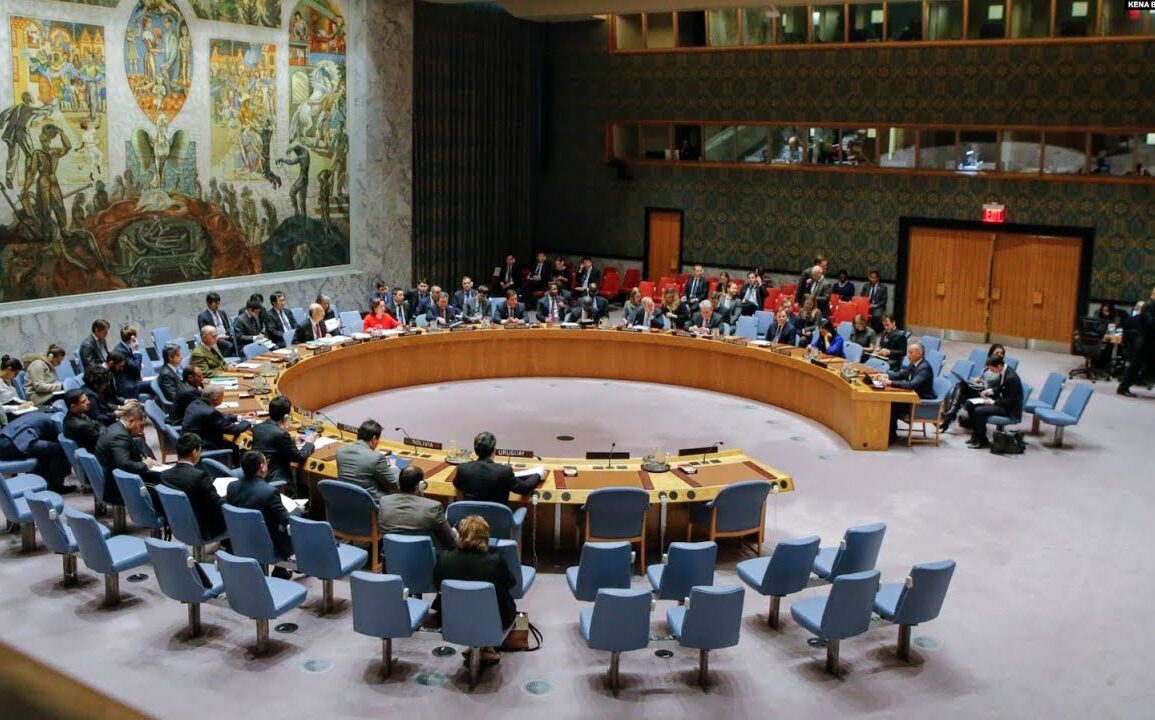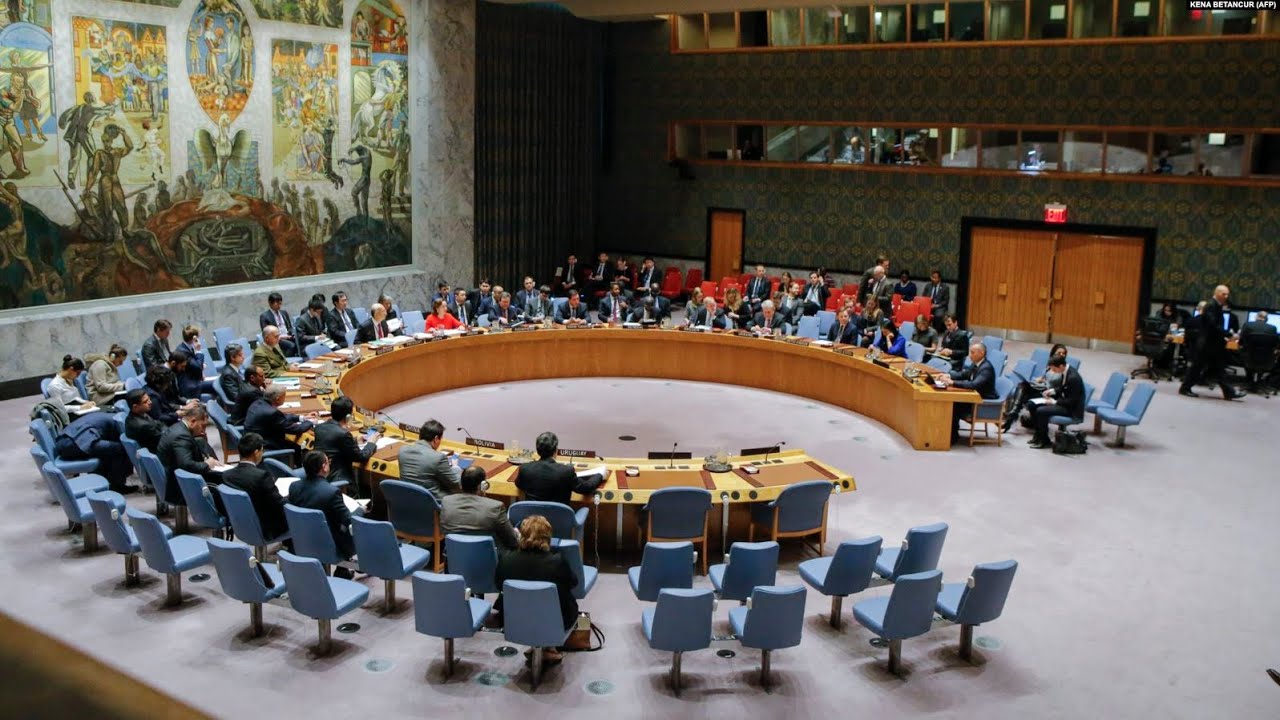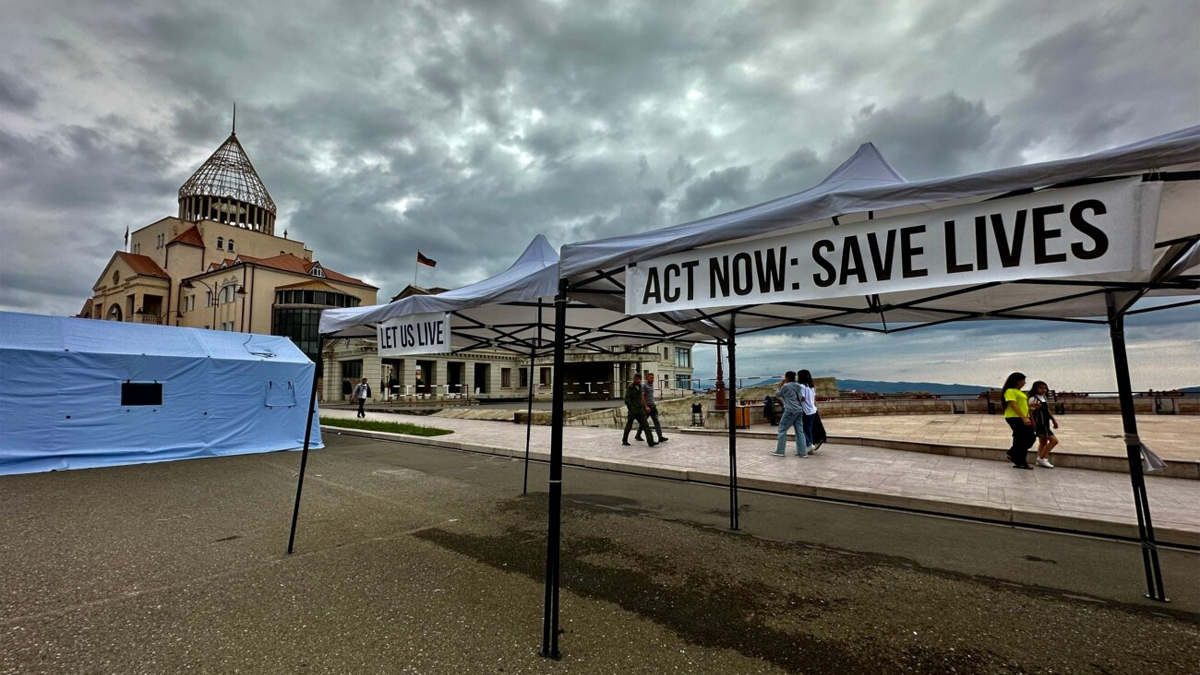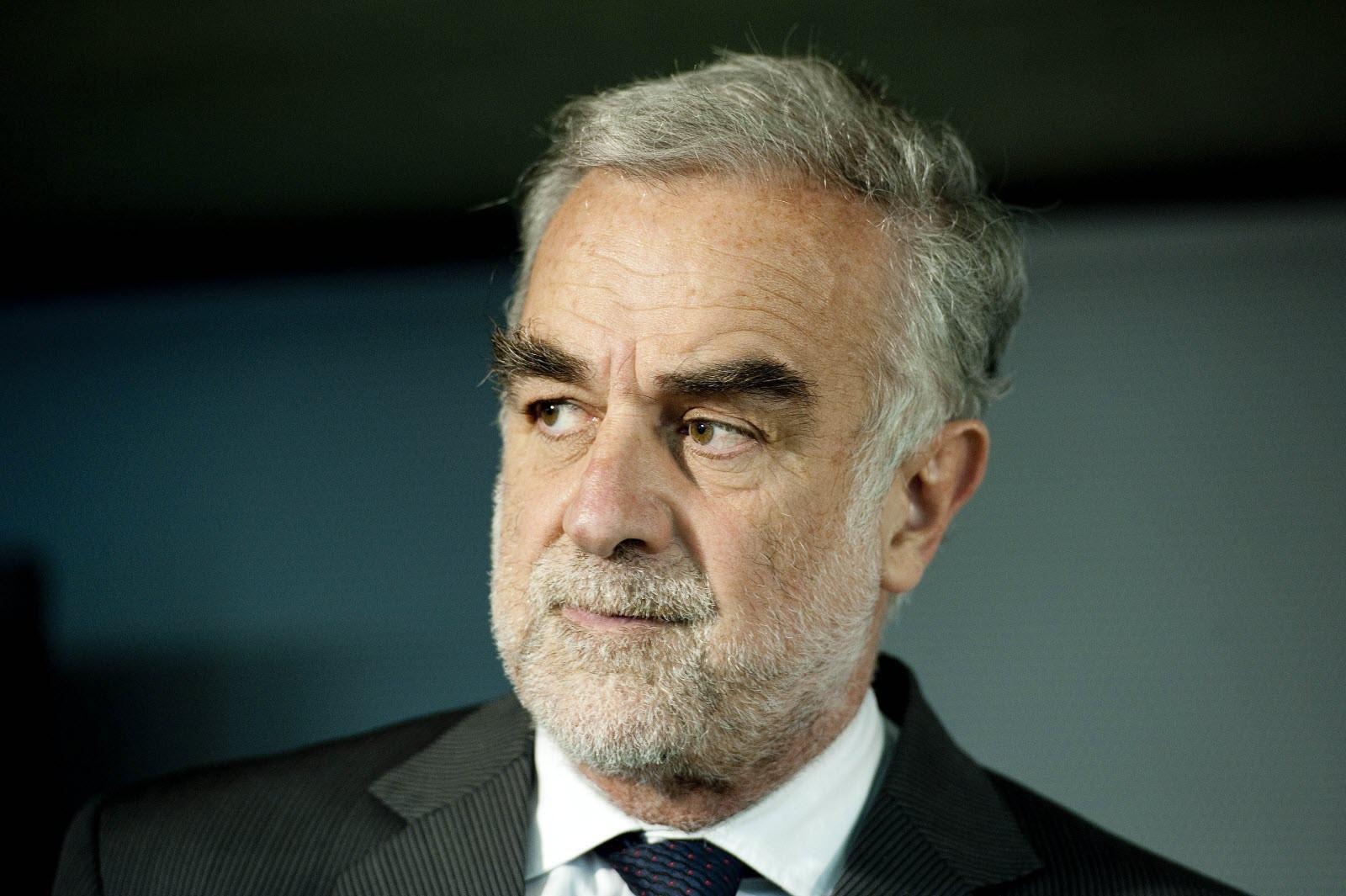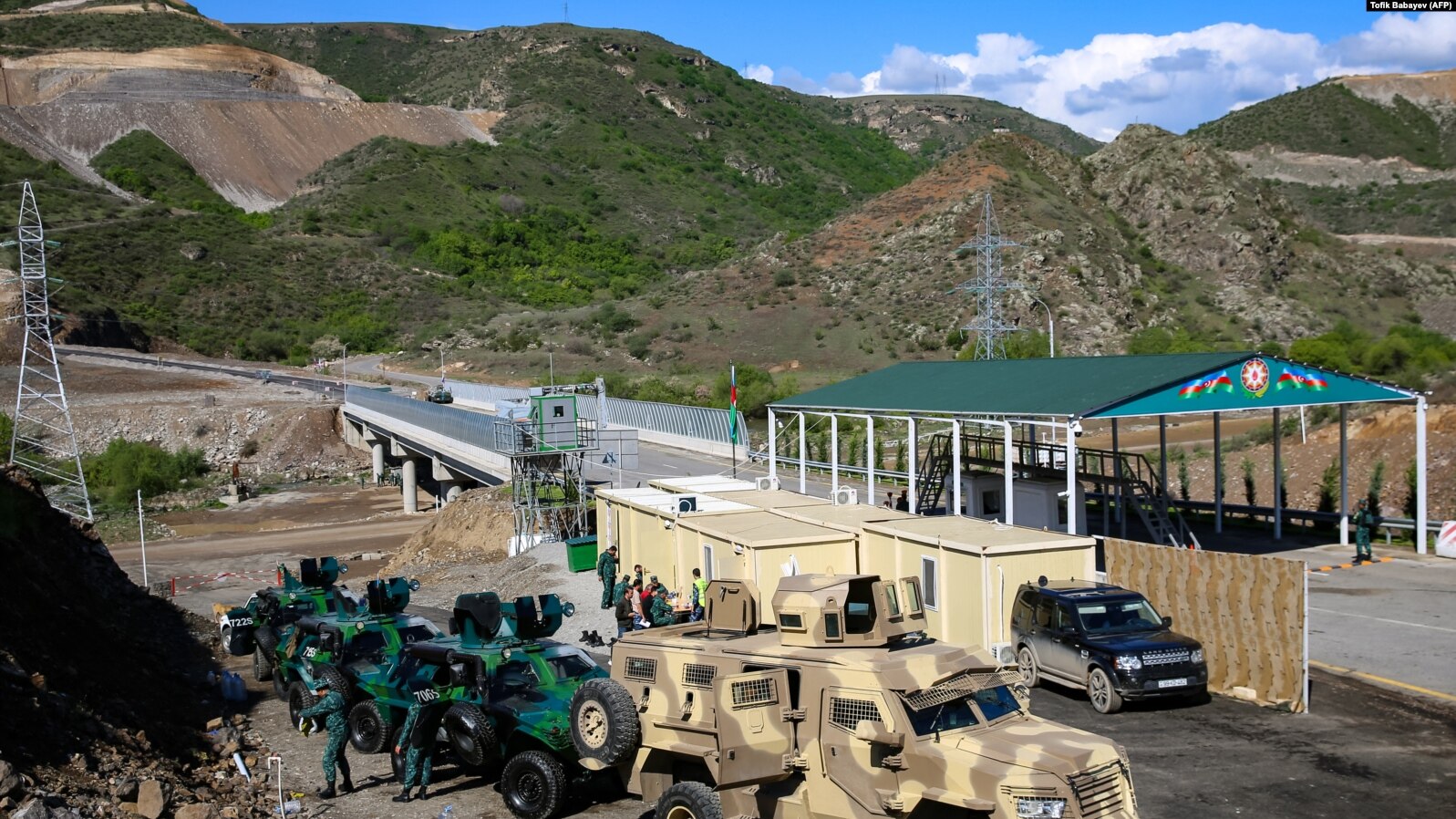Emergency meeting of UN Security Council on NK
“We can state that the truth about the illegal blocking of the Lachin corridor and the resulting humanitarian crisis in Nagorno-Karabakh was voiced in the highest international instance. And the international community has made a collective call to Azerbaijan to remove the illegal blocking of the Lachin corridor,” Armenian Prime Minister Nikol Pashinyan commented on the results of the emergency meeting of the UN Security Council.
The meeting was held at the request of Armenia “in connection with the deterioration of the humanitarian situation in Nagorno-Karabakh as a result of the blockade of the Lachin corridor and the complete blockade of Nagorno-Karabakh by Azerbaijan.” Representatives of 15 states that are members of the Security Council, as well as Armenia, Azerbaijan and Turkey, spoke. The Commissioner for the EU Delegation to the UN also participated in the meeting.
It is not yet known whether the Security Council will adopt any resolution or statement after nearly two hours of deliberation.
According to political observer Hakob Badalyan, “the effective functioning of the UN Security Council in the conditions of the ongoing world war cannot be expected.”
The UN Security Council already discussed this issue on December 20, 2022. The overwhelming majority of council members called on Azerbaijan to lift the blockade. However, no statement, much less a resolution, was adopted.
Opinions of members of the Security Council on the blockade of the Lachin corridor, assessment of the results of the discussion by the Prime Minister of Armenia, as well as comments by Armenian analysts on the likelihood of adopting a resolution.
Pashinyan sees three positive factors
Although no documents following the discussion in the Security Council have yet been adopted, the Prime Minister of Armenia spoke in the morning at a government meeting about the positive factors he noticed:
- “The fact of blocking the Lachin corridor was recognized in the highest international instance, we must not forget that Azerbaijan constantly insists that the Lachin corridor is open,
- confirmed the existence of a humanitarian crisis in Nagorno-Karabakh and the fact that the life and security of 120,000 residents of Nagorno-Karabakh are in question,
- The participants in the discussion stressed that the decision of the International Court of Justice on ensuring the unhindered movement of people, vehicles and goods in both directions through the Lachin corridor has not been implemented by Azerbaijan.”
Pashinyan stated that the situation in NK is deteriorating day by day. According to the prime minister, Azerbaijan not only prevented the import of 100 tons of flour sent by the Armenian government to Nagorno-Karabakh, but also does not allow local residents to harvest grain. He stressed that the peasants performing agricultural work are under fire from the Azerbaijani Armed Forces.
“This is another fact that substantiates the thesis put forward by international experts that Azerbaijan is committing genocide by starving the Armenians of Nagorno-Karabakh. In this regard, the unblocking of the Lachin corridor should be considered as a step aimed at preventing genocide,” he stressed.
Armenian Foreign Minister: “Preventing this catastrophe is the responsibility of the UN and the Security Council”
Foreign Minister Ararat Mirzoyan spoke from Armenia at the meeting. He presented statistical data and facts about the consequences of the 8-month blockade of the Lachin corridor. In his assessments, he also referred to the expert opinion of the former prosecutor of the International Criminal Court, Luis Moreno Ocampo, who after examining the issue declared that what is happening in NK is genocide in accordance with Article II, point “c” of the Genocide Convention: “deliberately creating for any group of such living conditions that are calculated for its physical destruction.”
“Preventing this catastrophe is the primary responsibility of the UN and this council. I believe that the respected council, despite geopolitical differences, is able to act as a body that prevents genocide, and not commemorate [the victims] when it is too late,” Ararat Mirzoyan said.
He stressed that Azerbaijan is provoking a humanitarian catastrophe in Nagorno-Karabakh, which undermines the prospects for achieving peace and stability in the region.
According to him, official Yerevan expects from the Security Council
- “condemn the use of starvation against civilians as a method of warfare, which is prohibited by international humanitarian law;
- condemn the illegal denial of humanitarian aid and the deprivation of the civilian population of NK of what is necessary for survival;
- demand full compliance with obligations under international humanitarian law;
- call for the immediate restoration of the freedom and safety of movement of citizens, vehicles and goods along the Lachin corridor in accordance with the previously reached agreements;
- to ensure the full and conscientious cooperation of the parties with the International Committee of the Red Cross, as well as the safe and unhindered delivery of humanitarian aid;
- send an independent multi-agency needs assessment mission and provide humanitarian assistance to the affected population.”
Referring to the proposal of alternative routes as a replacement for the Lachin Corridor, the Minister said:
“It was agreed that the Lachin corridor is a link between Armenia and Nagorno-Karabakh, and it has no alternative. The Lachin corridor should be open. As for other possible ways, this issue should be resolved within the framework of the international dialogue mechanism between Baku and Stepanakert.”
Statements by permanent members of the Security Council
The United States called on the Azerbaijani authorities to restore free movement along the Lachin corridor. In his remarks, the Representative of the States stressed that access to food, medicine, baby food and energy must not be hindered:
“We also take note that other additional routes for humanitarian supplies can be compromised.”
Talking about the establishment of peace in the region, he noted that this process should include the protection of the rights and security of people living in NK. The United States is calling for direct talks between the parties, including Baku officials and the Armenians of Nagorno-Karabakh.
The representative of Russia expressed hope that in order to overcome this difficult situation, “political will will be shown and a dialogue will take place in the Baku-Stepanakert format.” Without naming either side, he stated:
“Steps are needed to quickly de-escalate tensions around the Lachin corridor, end the blockade and use other humanitarian ways. We are doing everything in our power – by political and diplomatic means, at all levels and on the ground, so that the Russian peacekeeping forces prevent a humanitarian catastrophe in the region.”
According to the representative of Russia, reconciliation between Armenia and Azerbaijan is impossible without guarantees of the security and rights of the people of Nagorno-Karabakh. He specified: “guarantees based on internationally recognized principles and in the context of the laws of Azerbaijan.”
The representative of France stated that “Azerbaijan’s blocking of the Lachin corridor continues to isolate the inhabitants of Nagorno-Karabakh from the rest of the world without any legal grounds.” According to her, this is contrary to the principles of international humanitarian law:
“France condemns the ban on the import of humanitarian aid, which the Armenian authorities sent in July to eliminate the consequences of this situation. The same applies to obstructing the activities of the ICRC, which violates the principles of international law. It is unacceptable”.
The British representative called for the admission of the Red Cross to the NK on all roads to fulfill its vital function:
“All parties have an obligation to refrain from politicizing humanitarian assistance so that the needs of the civilian population can be met.”
According to him, it is important to implement the decision of the International Court of Justice of February 22, which obliges Azerbaijan to ensure unhindered movement along the Lachin corridor.
China called on Armenia and Azerbaijan to “compromise” and resolve disputes based on international humanitarian and international norms:
“We believe and hope that all the problems of the parties will be resolved through diplomacy. Armenia and Azerbaijan are neighbors. It is in the interests of both countries to follow a common path of security and development.”
The non-permanent members of the Security Council also took the floor.
They maintained a neutral position, expressed concern about the humanitarian situation in NK and stressed the need for unhindered access for humanitarian assistance.
The representative of Azerbaijan rejected the accusations of Armenia, called the allegations of famine and genocide “false and far-fetched.”
Comments
Political scientist Gurgen Simonyan stated:
“7 out of 15 members of the UN Security Council can block the adoption of a resolution by voting against it. The resolution will also be blocked if at least one of the 5 permanent members uses the right of veto. That is, if 9 members, including 5 permanent members, vote for the adoption of the document, the resolution will be adopted.
Now a question. Will Albania, the United Arab Emirates, Brazil, Gabon, Ghana, Ecuador and Mozambique vote no? Or will Russia [one of the permanent members of the Security Council] use its veto right? Let’s hope that common sense will prevail and the resolution will be adopted.”
Political observer Hakob Badalyan is less optimistic:
“It is unrealistic to imagine the practical, much less effective work of the UN Security Council in the conditions of the ongoing world war. The course of the meeting only confirmed this.
Offended, upset, send everyone to hell? Of course not. That would be an extremely flippant approach. The five permanent members of the UN Security Council are the minimum circle with which bilateral work and the desire for their maximum effectiveness should be the priorities of Armenian diplomacy.
At the same time, it should be borne in mind that this is a very complex problem now. Because we are actually forced to strive for maximum bilateral efficiency with a group of five states that have both bilateral and multilateral contradictions and confrontations between themselves. They are even in sharp military confrontation with each other. But we have no other choice. Therefore, a hypermobilization of diplomatic resources is needed, including non-governmental circles and resources outside of Armenia.
I do not agree with the opinion that Armenia will not be supported while we are in the Russian “system”. Of course, if Armenia starts a confrontation with Russia, it will be supported, but only in this, and not on the Karabakh issue. Because supporting Armenia in the Artsakh issue means going against Azerbaijan, and therefore against Turkey. And neither Russia nor any other power or superpower wants to do this. That’s why everyone [who spoke at the Security Council meeting] had the same narrative: you [Armenia and Azerbaijan] should come to terms with each other.”
Follow us – Twitter | Facebook | Instagram
Emergency meeting of the UN Security Council on the issue of NK
This post was originally published on this site be sure to check out more of their content.




